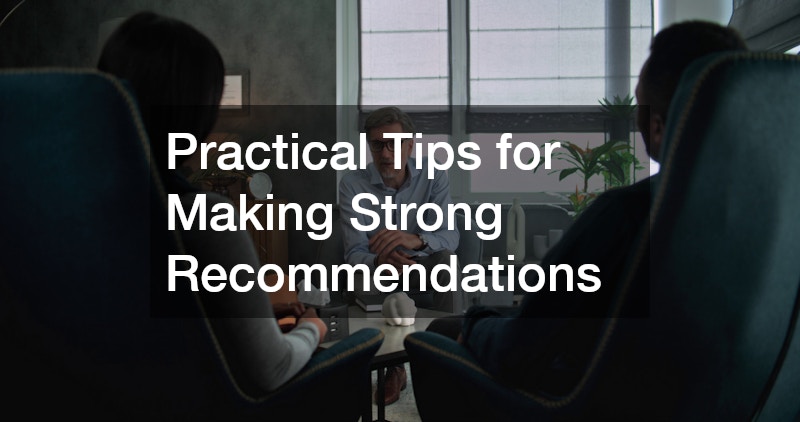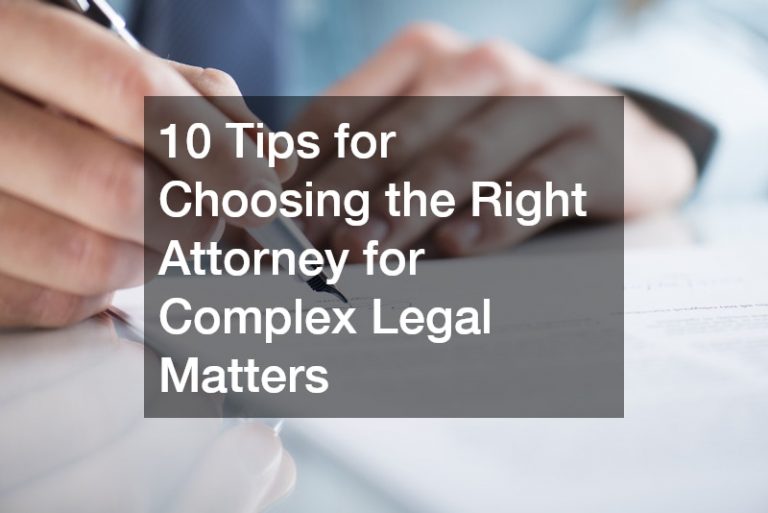- Collaborative divorce requires specialized attorney experience – Choosing a trained attorney ensures smoother, less adversarial settlements.
- Recommendations carry weight – Trusted referrals from professionals or peers help families find competent, ethical attorneys.
- Evaluate credentials and soft skills – Look for certifications, IACP membership, negotiation ability, and empathy.
- Compatibility matters – The attorney’s communication style and approach must align with the client’s needs and goals.
- Cost transparency is essential – Understanding fees and value prevents unexpected expenses and highlights collaborative savings.
- Practical steps improve outcomes – Research, review testimonials, assess fit, and provide multiple options when recommending.
- Strong recommendations protect families – Properly recommended attorneys help preserve relationships, reduce stress, and achieve fair resolutions.
Why Collaborative Divorce Requires the Right Attorney

Divorce is never an easy chapter in life, but the way it’s handled can make all the difference in terms of cost, emotional stress, and family stability. For couples who want to separate without the hostility of a courtroom battle, collaborative law has become an increasingly popular option in the United States. Unlike traditional litigation, collaborative divorce allows spouses to work with their attorneys and other neutral professionals in a cooperative setting to reach mutually beneficial agreements. Choosing, or being able to recommend, a divorce attorney with experience in collaborative law is essential to ensure the process runs smoothly, fairly, and with long-term success in mind.
In fact, collaborative divorce has been steadily gaining traction across the U.S. According to the International Academy of Collaborative Professionals (IACP), more than 22,000 professionals worldwide have been trained in collaborative practice, and participation has been growing every year (IACP Research). Data also shows that collaborative law often leads to faster settlements compared to litigation, with many cases resolving in less than a year, whereas contested divorces can take 18 months or longer (American Bar Association, Family Law Section). Beyond efficiency, collaborative law places families—especially children—at the center of the process. The American Psychological Association highlights that divorces handled cooperatively often reduce stress on children and foster healthier co-parenting relationships (APA on Divorce and Child Custody).
With those benefits in mind, the importance of recommending a divorce attorney with solid collaborative law experience becomes clear. A lawyer trained in this area not only protects a client’s legal interests but also helps preserve family relationships, minimize financial strain, and create sustainable post-divorce agreements. This guide will walk you through the essential steps for recommending the right attorney so that divorcing couples can move forward with dignity and confidence.
I. Understanding Collaborative Law in Divorce
Definition & Purpose
Collaborative law in divorce is a structured, voluntary process where couples work with trained professionals to resolve disputes respectfully without going to court. Instead of the adversarial “win-lose” mindset of litigation, collaborative divorce is built on cooperation, transparency, and problem-solving.
Key principles include:
-
Mutual respect – spouses agree to keep discussions civil and productive.
-
Transparency – full disclosure of financial and personal information.
-
Problem-solving – attorneys act as advisors, not combatants.
-
Relationship preservation – crucial when children or shared businesses are involved.
This approach gives couples more control over the outcome rather than leaving decisions in the hands of a judge.
Growth of Collaborative Divorce in the U.S.
Collaborative divorce is not new, but its popularity has grown significantly in recent years.
-
The International Academy of Collaborative Professionals (IACP) reports thousands of trained professionals across the U.S. and internationally.
-
According to the ABA Family Law Section, more states are integrating collaborative law statutes into their legal frameworks, legitimizing the practice.
-
Families with children increasingly prefer collaborative processes—surveys show over 70% of parents believe collaborative divorce is less damaging to children than litigation.
-
Collaborative divorce is also becoming popular among high-net-worth couples, who value confidentiality, creative financial solutions, and long-term planning.
Why Attorney Experience Matters
Even though collaborative law sounds ideal, its success depends on the attorney’s skills. Recommending a divorce attorney with experience ensures the process runs smoothly.
An inexperienced attorney may:
-
Push toward unnecessary litigation.
-
Fail to manage emotional conflict.
-
Miss opportunities for creative settlements.
In contrast, an experienced collaborative divorce attorney knows how to balance legal guidance, negotiation skills, and emotional intelligence, ensuring both spouses leave with a fair outcome and minimal conflict.
II. Why Recommendations Matter in Choosing a Divorce Attorney
Trust and Reliability
When clients look for a divorce attorney, they want reassurance. Divorce is one of life’s most stressful transitions, and having a trusted referral can make the process less overwhelming.
-
Personal recommendations – A referral from a family member, friend, or colleague can provide peace of mind.
-
Professional recommendations – Therapists, financial planners, and even clergy often recommend attorneys when divorce discussions begin.
A well-placed recommendation helps clients feel secure that they are working with someone competent and trustworthy.
Avoiding Common Pitfalls
Without proper recommendations, clients risk:
-
Choosing an attorney who pushes them into litigation unnecessarily.
-
Paying inflated fees without transparency.
-
Losing time and money with someone unfamiliar with collaborative methods.
-
Damaging family relationships due to overly aggressive legal strategies.
Ethical Considerations in Making a Recommendation
When you recommend a divorce attorney with experience, especially if you’re a professional (paralegal, counselor, or attorney), ethics matter:
-
Provide multiple options instead of a single name.
-
Disclose conflicts of interest – e.g., if you have a financial relationship with the attorney.
-
Encourage independent research – a recommendation should guide, not pressure.
III. Key Qualities of an Experienced Collaborative Divorce Attorney
If you are going to recommend a divorce attorney with experience, look for these qualities:
Specialized Training & Certification
-
Membership in the International Academy of Collaborative Professionals (IACP).
-
Active participation in local or state collaborative law practice groups.
-
Completion of certified training programs in collaborative divorce and mediation.
Track Record in Collaborative Cases
-
A strong history of settlements achieved without litigation.
-
Documented experience in creating child-focused parenting plans.
-
Familiarity with financial complexities, including business valuations, retirement accounts, and property division.
Soft Skills That Matter
Collaborative divorce requires empathy and diplomacy. Essential soft skills include:
-
Active listening – understanding both parties’ needs.
-
Conflict resolution – mediating tensions without escalating disputes.
-
Communication – simplifying legal language so clients can make informed choices.
Transparency and Professionalism
-
Clear and upfront fee structures – clients should never be surprised by hidden costs.
-
Professional reputation – respect from peers and previous clients.
-
Commitment to timelines – avoiding unnecessary delays.
IV. Steps to Recommend a Divorce Attorney with Collaborative Law Experience
Step 1: Identify the Client’s Needs
Ask the right questions before recommending an attorney:
-
Do they have children whose best interests must be prioritized?
-
Are there complex financial assets to divide?
-
Do they want to maintain a friendly relationship post-divorce (important for co-parenting)?
Step 2: Research Qualified Attorneys
Guide clients to:
-
State bar directories for licensed family law attorneys.
-
The IACP directory, which lists trained collaborative professionals.
-
Local collaborative law groups, often found through bar associations.
Step 3: Evaluate Credentials and Training
Encourage clients to check:
-
Certifications in collaborative practice.
-
Publications, articles, or conference participation on collaborative divorce.
-
Referrals from other collaborative professionals (financial advisors, child specialists).
Step 4: Review Reputation and Testimonials
Look for signs of trustworthiness:
-
Online reviews on Avvo, Martindale-Hubbell, or Google Business Profiles.
-
Peer endorsements from other attorneys.
-
Case examples showing successful collaborative outcomes.
Step 5: Assess Compatibility
Remind clients that the attorney-client relationship is personal:
-
Schedule initial consultations with multiple attorneys.
-
Evaluate communication style and empathy.
-
Ensure both spouses feel comfortable with the attorney’s approach.
Step 6: Compare Costs and Value
Collaborative law often saves money compared to litigation, but transparency is key. Clients should:
-
Request detailed fee breakdowns.
-
Compare flat fees vs. hourly rates.
-
Consider long-term savings from avoiding court battles.
Step 7: Provide a Thoughtful Recommendation
When you recommend a divorce attorney with experience:
-
Provide at least two or three names.
-
Be transparent about why you recommend them (training, reputation, results).
-
Avoid bias or favoritism—base recommendations on expertise, not popularity.
V. Practical Tips for Making Strong Recommendations

-
Highlight benefits of collaborative law – reduced stress, child-focused solutions, and privacy.
-
Offer resources – IACP directories, ABA Family Law Section, or local bar associations.
-
Prepare clients with consultation questions, such as:
-
How many collaborative cases have you handled?
-
What is your success rate in avoiding litigation?
-
How do you approach custody agreements in collaborative settings?
-
What strategies do you use to reduce conflict?
-
VI. Common Mistakes to Avoid When Recommending a Divorce Attorney
-
Recommending based on popularity – a well-known attorney may not specialize in collaboration.
-
Overlooking certifications – collaborative law requires training beyond traditional family law.
-
Ignoring soft skills – an aggressive litigator may derail the collaborative process.
-
Failing to mention conflicts of interest – transparency protects everyone.
VII. Case Examples: Success with Experienced Collaborative Divorce Attorneys
Case Example 1: Positive Recommendation
A couple with two children was referred to a collaborative divorce attorney with over 12 years of experience. The attorney guided them to create a parenting plan that minimized conflict, helped divide assets fairly, and reduced overall legal costs by 40% compared to litigation.
Case Example 2: Poor Recommendation
Another family chose a general family law attorney without collaborative training. Within weeks, discussions turned hostile, the case moved into litigation, and both parties spent nearly twice as much as they expected. The children were caught in the middle of a contentious custody battle.
Lesson: When you recommend a divorce attorney with experience, you save families not just money, but emotional hardship.
VIII. Resources for Finding and Recommending Collaborative Divorce Attorneys
-
American Bar Association (ABA) Family Law Section – www.americanbar.org/groups/family_law
-
International Academy of Collaborative Professionals (IACP) – www.collaborativepractice.com
-
State and Local Bar Associations – searchable databases of licensed attorneys.
-
Legal Directories – Avvo, Martindale-Hubbell, Super Lawyers.
IX. Conclusion – Building Stronger Families Through Better Recommendations
Recommending a divorce attorney with collaborative law experience can profoundly impact a family’s future. This approach offers a dignified, respectful, and efficient alternative to traditional litigation, emphasizing cooperation over conflict. By choosing an attorney skilled in collaborative divorce, couples can navigate their separation with greater control, preserving relationships and minimizing emotional strain. According to Psychology Today, collaborative divorce not only reduces costs but also helps families avoid the prolonged legal battles that can exacerbate stress and financial strain.
Whether you’re a professional guiding clients or a friend offering support, your recommendation plays a crucial role. Taking the time to research and refer experienced collaborative attorneys empowers families to make informed decisions, leading to healthier outcomes and a smoother transition to the next chapter of their lives. Studies highlighted by Claery Green Law demonstrate that collaborative divorce fosters open communication and mutual respect, significantly reducing emotional turmoil for both spouses and children.
Another key advantage of recommending a trained collaborative attorney is the privacy and control families maintain throughout the process. As noted by Choose Collaborative, couples retain authority over decisions rather than leaving outcomes in the hands of a judge, allowing for more personalized agreements that reflect the family’s unique needs. Additionally, preserving relationships through this cooperative approach benefits children and encourages healthier long-term co-parenting arrangements.
By thoughtfully recommending a divorce attorney with collaborative law experience, you are helping families not only achieve fair and efficient resolutions but also foster emotional well-being, financial stability, and lasting family harmony. Your guidance can make the difference between a contentious, stressful divorce and a collaborative process that supports stronger, more resilient families.
X. FAQs
What is the difference between collaborative divorce and mediation?
Collaborative divorce involves both spouses, their attorneys, and sometimes additional professionals working together to reach agreements. Mediation uses a neutral third party to facilitate discussions but does not involve legal representation in the same way.
How do I know if a divorce attorney has collaborative law experience?
Look for certifications from collaborative practice organizations, a history of handling collaborative cases, and membership in groups like the IACP.
Is collaborative law cheaper than traditional divorce litigation?
In most cases, yes. By avoiding courtroom battles, couples save on litigation fees, expert witness costs, and time-related expenses.
Can any attorney handle collaborative divorce?
Not necessarily. While any licensed attorney can represent divorce clients, collaborative divorce requires specialized training and a cooperative mindset.
Where can I find a directory of collaborative divorce attorneys in the U.S.?
The International Academy of Collaborative Professionals (IACP) maintains a comprehensive directory of trained attorneys. State and local bar associations also provide listings.







